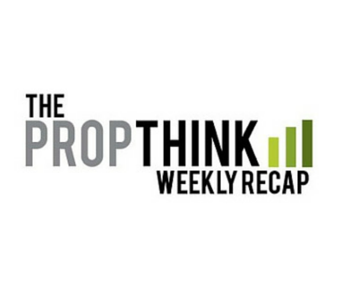This week was a busy one for biopharma BD teams.
Finallized on Sunday, Valeant (VRX) will pay $158 per share for Salix Pharmaceuticals (SLXP) in an all-cash deal valued at about $10.1 billion. Valeant has relied heavily on a roll-up/M&A strategy for nearly the last decade, but Salix is the largest to date following a failed attempt at Allergan (AGN) in 2014. Valeant takes heat for being so reliant on its acquisition strategy, but the company’s plan to shirk internal R&D efforts (and spend) in favor of simply buying promising assets outright has been richly rewarded. VRX is up almost 1200% in the last five years compared to the biotech sector’s 400% gain in the same timeframe. Whether Valeant can continue the spree successfully remains to be seen, but buying growth, as opposed to developing it internally, has been a great strategy for VRX thus far.
Monday morning saw Merck (MRK) announce a $450 million alliance with privately held NGM Biopharmaceuticals to develop novel biologics. Merck will put up $200 million initially to collaborate on a number of drug candidates currently in preclinical development at NGM..
That’s right – the $450 million deal is for preclinical compounds. Merck will have the option to license NGM programs after initial human proof of concept trials.
Bristol-Myers Squibb (BMY), meanwhile, announced an agreement to acquire Flexus Biosciences, a privately held company focused on the discovery and development of oncology therapies. BMY paid $800 million upfront and an additional $450 million in potential milestones for access to F001287, the smaller company’s lead preclinical IDO1-inhibitor. BMY also gets access to Flexus’ IDO/TDO discovery program.
Again, a big upfront for an early asset.
BMY will also pay $30 million in a new collaboration with Rigel Pharma (RIGL) to discover and develop new cancer immunotherapies. The collaboration centers around Rigel’s portfolio of small molecule TGF beta kinase inhibitors. Rigel will be eligible to receive development and regulatory milestones worth $309 million for a successfully approved compound, plus tiered royalties on sales of any successful products.
Halfway through the week, Bloomberg broke the story that Pharmacyclics (PCYC) is in play. This is still rumor, but Bloomberg noted that Pharmacyclics has attracted interest from current Imbruvica (ibrutinib) partner Johnson & Johnson (JNJ) and Novartis (NVS), with sources close to the company saying that bids might occur at $17-$18 billion. The report was corroborated by the Financial Times. Sources close to the company reportedly told FT that the sales process was being conducted at a value of $19 billion. PCYC quickly rallied to new highs, closing up 16% at $220.22 on the day. The question for current investors: Is there any truth to the reporting, and at record levels, does it make sense to take profits? Mr. Deryugin has been a long-time PCYC bull, and on Friday explained for PropThink Premium members how he’s approaching this latest piece of news. With the stock up 200% since he first began covering the name for PropThink, it’s been a profitable ride.
Xencor, Inc (XNCR) priced an equity financing on Wednesday morning, selling 7.5 million shares of common stock at $14.25 for gross proceeds of $106 million. The deal came as no surprise to anyone following the story, which Mr. King pointed out in a short article on Wednesday. Two facets of this deal make it interesting for investors: 1) Xencor upsidez the equity offering from 5.5 million to 7.5 million shares, which investors will see as indicative of higher-than-expected demand; and 2) XNCR had been under pressure since reporting top-line results from a phase Ib/IIa study of its XmAb5871 3 weeks ago (which originally sent the stock up by 20%, to $19). The sell-off had largely been attributed to expectations for a financing.
With the coffers full and slate of quality investors and collaborations, XNCR and its XmAb technology are worth getting to know this year, though we would point out that company has few major value-driving events in 2015.
Miss our rigorous analysis of why the biotech sector is going higher this year? We dug up some interesting statistics in January that point to just that. Check out Biotech Stocks Will Rip Higher in 2015 Because the Patriots Took Super Bowl XLIX for $100 off an annual subscription to our biotech/healthcare research service, PropThink Premium.
One or more of PropThink’s contributors are long VRX, MRK, BMY, PCYC, JNJ, NVS, or XNCR.


